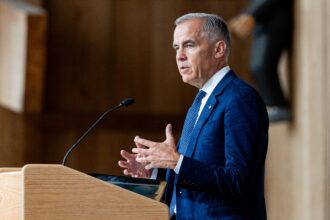In the shadow of Canada’s towering housing prices, a growing chorus of economic experts is challenging the federal government’s approach to the national housing crisis. As young Canadians increasingly find themselves priced out of homeownership in major urban centers, economists are advocating for a fundamental shift in policy thinking: allowing home prices to fall may be the necessary medicine for a market that has become detached from economic fundamentals.
“The uncomfortable truth is that meaningful affordability cannot be achieved without some degree of price correction,” says Dr. Emily Westbrook, housing economist at the Toronto Economic Institute. “Current policies seem designed to protect existing homeowners’ equity while paying lip service to affordability concerns.”
The average home price in Canada has increased by nearly 50 percent since 2019, creating what many describe as a generational wealth gap. In markets like Vancouver and Toronto, the situation has reached crisis proportions, with the average home price exceeding $1.2 million, requiring income levels far beyond what most young professionals can achieve.
According to Canada’s housing statistics, homeownership rates among Canadians under 35 have dropped to their lowest levels in four decades. This demographic shift carries profound implications for economic mobility and social stability, experts warn.
The federal government’s recent housing initiatives have focused largely on supply-side solutions and buyer incentives. The First-Time Home Buyer Incentive and various tax credits have been positioned as pathways to ownership, but critics argue these measures merely enable buyers to accommodate inflated prices rather than addressing the fundamental affordability problem.
“We’re seeing a policy framework that essentially tells young Canadians to adapt to unaffordable prices rather than creating conditions for prices to adapt to economic reality,” notes financial analyst Richard Chen in an interview with CO24 Business.
A recent report from the Canadian Centre for Policy Alternatives suggests that a managed 15-20 percent price correction would bring housing more in line with local incomes in many markets while still protecting long-term homeowners from significant equity loss. Such a correction, the report argues, would primarily impact speculative investments and recent purchases made at market peaks.
The Bank of Canada’s rising interest rates have begun to cool some markets, but many economists believe more direct intervention is necessary. Proposals include more aggressive taxation of multiple property owners, restrictions on corporate ownership of residential properties, and reformed zoning laws to increase density in urban areas.
“Other countries have successfully implemented policies that prioritize housing as a home rather than an investment vehicle,” explains urban policy researcher Sarah Jameson. “Canada seems reluctant to make this conceptual shift, despite mounting evidence that our current approach is creating social and economic harm.”
Political observers note that the electoral calculus complicates matters, as approximately 68 percent of Canadian households own their homes and may resist policies that could reduce their property values. However, as affordability concerns spread to affect middle-income families, political pressure for more decisive action continues to build.
The ongoing debate raises profound questions about intergenerational equity and the role of government in housing markets. As Canada faces demographic challenges and changing economic conditions, can we develop housing policies that balance the interests of current homeowners with the needs of future generations? The answer may determine whether homeownership remains an achievable part of the Canadian dream or becomes a privilege reserved for the fortunate few.

























